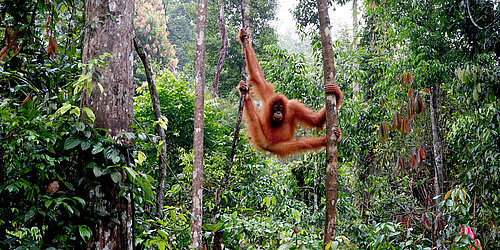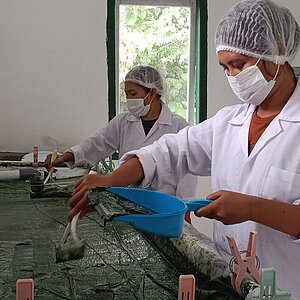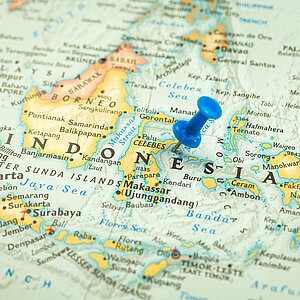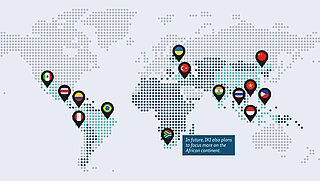Indonesia
Last updated: September 2025
Indonesia plays an important role in the achievement of the objectives of the Paris Agreement and the Convention on Biological Diversity (CBD). The country is one of the ten largest emitters of greenhouse gas in the world and, according to the Nationally Determined Contribution (NDC), emissions will continue to increase until 2030.
As an archipelago, Indonesia is also severely affected by the impacts of climate change. The rich and unique biodiversity of the country is endangered by non-sustainable practices. The Indonesian government has expressed its commitment to respond to these challenges and has developed a policy framework for the climate and biodiversity.
Interface project
All priority countries of the IKI also engage in so-called IKI interface projects, which have permanent project offices in the capital city of the respective country. Alongside their own, country-specific project commission, these interface projects are also tasked with maintaining close contact to environment and climate ministries as well as networking with other relevant ministries in the field of climate and biodiversity policy. Beyond this, the interface projects also work to network all of the IKI projects in the country and region together so as to promote synergies.
The interface function is currently represented by the project Climate and Biodiversity Hub Indonesia.
Project priorities
- Support of the Indonesian government in implementing its climate and biodiversity policy;
- Policy advice, capacity building and inter-ministerial exchange;
- Mobilisation of additional resources from all sources (including: private and financial institutions);
- Function as an IKI interface: promoting dialogue on climate and biodiversity between the IKI projects in the country as well as between other actors (networking offers and knowledge management).
Insights into the project work
In a nutshell
Region: Asia
Population: 283.5 million (World Bank, 2024)
CO2eq emissions (incl. LUCF): 1.543 billion t (7th rank of global top emitters) (ClimateWatch, 2022)
CO2eq emissions per capita (incl. LUCF): 5.5 t (ClimateWatch, 2022)
Total energy supply (IEA, 2023):
- 36 % Coal
- 16 % Gas
- 1 % Hydro
- 11 % Wind, Solar etc.
- 11 % Biofuels / Waste
- 26 % Oil
- 16 % RE in electricity mix (0.1 % Wind, 0.2 % PV)
IKI projects in the country (last updated in August 2025):
- bilateral: 15 ongoing, 28 completed
- regional: 8 ongoing, 20 completed
- global: 24 ongoing, 49 completed
IKI partner ministries:
- State Ministry for National Development Planning (BAPPENAS)
- Ministry of Environment (KLH)
- Ministry of Forestry (KK)
- Ministry of Energy and Mineral Resources (MEMR)
- Ministry of Marine Affairs and Fisheries
- Ministry of Agriculture
- Ministry of Industry
- Ministry of Finance
- Ministry of State-Owned Enterprises (MSOE)
- Ministry of Public Works (PU)
The IKI Strategy
The IKI wants to maximise its impact on climate action and biodiversity conservation. To this end, it concentrates its funding activities on prioritised fields of action within the four funding areas. Another key element is the close cooperation with selected partner countries, especially with the IKI’s priority countries.
IKI partner countries
The link has been copied to the clipboard














